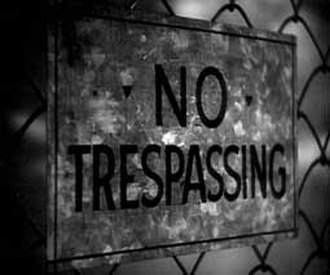| I don't usually talk about politics on the pulpit. In general, it strikes me as arrogant to claim to know "the Jewish position" on any policy choice our society faces. The rabbis of the Talmud could not agree with each other on the issues of their own day, so how can we imagine that we know what positions they would take on immigration reform, tax policy or gun control? Yet, even if Judaism cannot dictate specific policies, Judaism can teach us values that will guide us as we struggle to find the best way to shape our society. |
We are presented this week with the cities of Sodom and Gomorrah. In Christian tradition, the sin of Sodom is identified with sexual transgression. However, in Judaism, the emphasis is quite different. In forming their interpretation of the story, the rabbis read a passage from the prophet Ezekiel:
Behold, this was the sin of your sister, Sodom—arrogance! She and her daughters had their fill of bread and untroubled contentment. Yet, she did not support the poor and needy. In their haughtiness they committed abomination before Me. That is why I took them away when I saw it. (Ezekiel 16:49-50)
To the rabbis, the sin of the Sodomites was not sodomy, as it is in Christianity. Rather, it was the sin of haughty greed. The rabbis embellished this image of Sodom and Gomorrah with midrashic legends about their selfishness:
After a while, travelers avoided these cities, but if some poor devil was betrayed occasionally into entering them, they would give him gold and silver, but never any food, so that he was bound to die of starvation. Once he was dead, the residents of the city came and took back the marked gold and silver which they had given him, and they would quarrel about the distribution of his clothes, for they would bury him naked. (Ginsburg, Legends of the Jews, 1:247).
It should be painfully obvious how to apply this teaching to our own society. We, in the contemporary developed nations, are living in the most affluent society the world has ever known. The comfortable among us toss around miraculous electronic gadgets as if they were toys (I'm typing on one right now), and we are so used to the luxuries of modern life that we have come to think of them as necessities. Yet, we live oblivious to the poverty next door to us.
In the relatively affluent Florida county where I live, almost 15% of the population is at or below the poverty line. Almost 30% of children live in poverty. Thousands in our community live with hunger as a daily experience in the midst of wealth that would have made the pharaohs blush. Across North America, you do not have to go far to find today's Sodoms.
The rabbis teach in the Mishnah (Avot 5:10) that there are four types of people: the ordinary people who say, “What is mine is mine, and what is yours is yours,” the foolish people who say, “What is mine is yours, and what is yours is mine,” the pious people who say, “What is mine is yours, and what is yours is yours," and the wicked people who say, “What is mine is mine, and what is yours is mine.”
Which of these four is the type we would find in Sodom? One might be tempted to say that it is the fourth type—the wicked people who lay claim to everyone's possessions. Curiously, though, the Mishnah says that it is the first type—the ordinary sort of people who neither share what is theirs nor claim what belongs to others. What is wrong with that kind of "ordinary" thinking?
Our society did not become a place where real poverty and extreme wealth live side-by-side because of rapacious robber barons. Rather, we are a society shaped by the ordinary behaviors of people who believe they are entitled to keep what is theirs and "let everyone else do the same." It is this attitude that is the recipe for Sodom. In such a society, the prevailing rule becomes "each man for himself" and the prevailing attitude toward the poor becomes "they have none to blame but themselves." Such ordinary, common evil is what the rabbis so much wanted to warn us against.
I cannot claim that Jewish tradition has specific policies to recommend to us for the creation of a more open-hearted and caring society. After all, there is no prescription in the Torah for the right tax code or the right welfare policy for our times. However, I can say that the rabbis have warned us against building a society on policies that focus more on property rights than on the obligation to care for each other. I ask you to think about the way that contemporary politics puts so much emphasis on keeping the hands of government off of the wealth of the wealthy, and so little emphasis on the immorality of allowing people to go hungry. When you do, consider that we have become the children of Sodom.


 RSS Feed
RSS Feed
